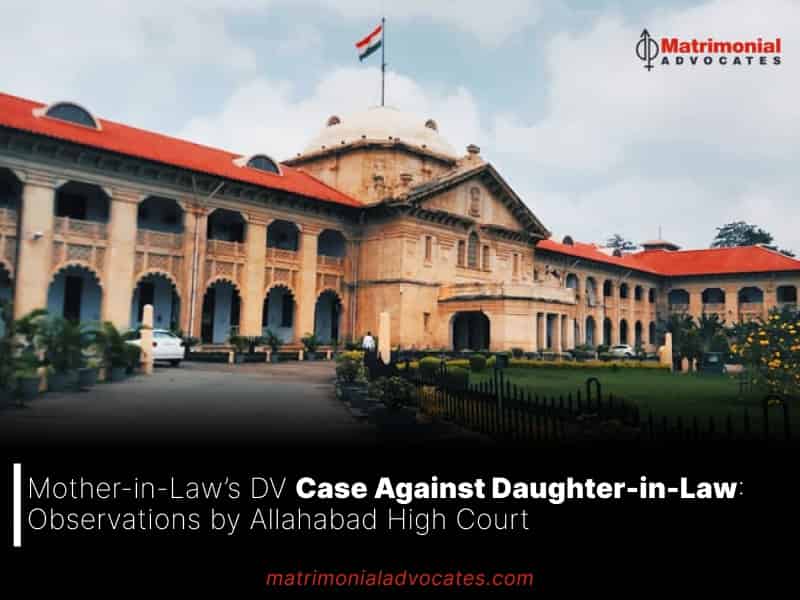
In case a mother-in-law is harassed or physically or mentally tortured by the daughter-in-law or any other member of the family, certainly she could be brought within the fold of aggrieved person, the Court ruled.
The Allahabad High Court has ruled that a mother-in-law is legally permitted to initiate proceedings under the Protection of Women from Domestic Violence Act, 2005, against her daughter-in-law [Smt Garima & Others v. State of UP].
Justice Alok Mathur upheld the trial court’s order summoning the daughter-in-law and her relatives based on the mother-in-law’s allegations.
Referring to Section 12 of the Act, the Court emphasized that any aggrieved woman living in a domestic relationship within a shared household is entitled to seek protection and remedies under the Act, thereby rejecting the argument that a mother-in-law is barred from filing such complaints.
“In case, mother-in-law is harassed or physically or mentally tortured by the daughter-in-law or any other member of the family, certainly she could be brought within the fold of aggrieved person and would have a right to maintain the application under Section 12 of the Protection of Women from Domestic Violence Act, 2005,” the Court held.
The Court underscored that the Protection of Women from Domestic Violence Act, 2005, is a piece of welfare legislation intended to safeguard women from abuse within domestic settings and must be interpreted in a liberal, inclusive manner rather than narrowly. The judgment was issued in response to a petition filed by a woman and her five relatives, who had been summoned by the Additional Chief Judicial Magistrate, Lucknow, the previous year.
In her complaint to the magistrate, the mother-in-law alleged that her daughter-in-law was coercing her son to relocate and reside with the daughter-in-law’s parents. She also accused the daughter-in-law of ill-treating her and other members of the family and of threatening to lodge false legal complaints against them.
In contrast, the daughter-in-law’s legal counsel contended before the High Court that the complaint filed by the mother-in-law was a retaliatory measure, aimed at countering the domestic violence and dowry case already instituted against the in-laws.
Upon reviewing the submissions, the Court concluded that the mother-in-law’s complaint prima facie established a case under Section 12 of the Domestic Violence Act. In addressing the issue of maintainability, the Court examined the pertinent provisions of the Act and stated that-
“On conjoint reading of the above sections, it can be inferred that the aggrieved person can be any woman who has lived in a domestic relationship in a shared household with the respondent. Here, in this case, the mother in law is the aggrieved woman who has shared household and lived together with the daughter in law in a domestic relationship as a joint family and therefore has a right to file application under Sec. 12 of the Act of 2005.”
Consequently, the Court rejected the petition challenging the summons issued by the trial court.





